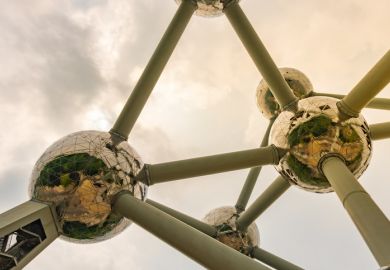When European Commission president Ursula von der Leyen announced her designated College of Commissioners for 2024-2029 earlier this month, research and innovation featured remarkably strongly in a range of portfolios. But one priority was missing: preparing the next framework programme for research and innovation (FP10), the successor to Horizon Europe.
To ensure Europe’s “position in the race to a clean and digital economy”, Ekaterina Zaharieva, the designate commissioner for “startups, research and innovation”, is tasked with achieving “a clearer focus on the most important and disruptive innovation needed” for the European Union’s competitiveness.
Her duties will include expanding the European Research Council (ERC) and the European Innovation Council (EIC). She must develop a long-term strategy to boost Europe’s research infrastructure. She is asked to work on a Biotech Act, an ERA (European Research Area) Act, and a European AI Research Council. She will oversee the implementation of Horizon Europe. But not (it seems) the development of FP10.
It is an omission that has left many stakeholders as well as EU officials baffled.
Article 182 of the EU Treaties (TEU) specifies the existence of an overarching “framework programme” for research and innovation (R&I), with an overall budget. So we are likely to have something called FP10 in the end – but that could be a summary heading of individual instruments, rather than the relatively cohesive programmes, such as Horizon 2020 and Horizon Europe, that we have been used to. What would that mean in practice?
If the commission prioritised stand-alone instruments, it could concentrate on those it likes: EIC, ERC, missions, partnerships and a range of legislative acts. It could then develop specific R&I instruments to support its prioritisation of AI, biotechnology and advanced materials. These would be guided by a directionist, outcome-oriented logic, making it all but impossible for fundamental research to engage.
Such instruments could also have very different rules of participation that make them hard to access for researchers from institutions with less resource to sustain significant EU funding offices, with the capacity to deal with such complexities. This would reverse any progress made in the past decade towards widening participation (especially of the EU-13 group of newer member states). It would also fly in the face of years-long efforts to simplify EU funding conditions for researchers.
Directional instruments in AI or biotechnology could develop their own institutional logic and be managed by other directorates-general, such as Connect (AI) or Health/Sante (biotech). But these directorates have little understanding of research. The current R&I Mission in Cancer, managed by DG Sante, shows little appetite for cutting-edge health research, let alone fundamental life sciences research.
Luckily, the emphasis on individual instruments to replace a coherent approach for FP10 is by no means yet a given. Over the next few months, it is crucial that we make a clear case for how we can make FP10 effective and coherent.
To begin with, we must insist on the Treaties – not just Article 182, but also Articles 179 and180, which define the framework programmes as establishing objectives to achieve the ERA. If we are faced with a plethora of different rules, ERA would take a step back. That is unacceptable on both scientific and legal grounds.
Moreover, Europe must build on its strengths. The leading US universities and research institutes, for instance, have financial resources that Europe’s counterparts can only dream of. But Europe does have one ace up its sleeve: collaboration, financed largely by the EU’s framework programmes. We should strengthen this right across the continent, not narrow its scope to a few players.
We should also take the commission president at her word. She was re-elected by the European Parliament with strategic priorities that included not only competitiveness, but strengthening societies, sustaining quality of life (in relation to food, water and nature), supporting democracy, and furthering the EU’s international partnerships. All these must be reflected in FP10.
By throwing into question FP10, the president may, in fact, have challenged us all to do some radical thinking on how it can become more strategic and effective. If we are concerned about Europe’s collaborative research being reduced to specific technologies, how can we persuade increasingly sceptical, right-wing governments that they must increase R&I investment at the EU level?
At the same time, the new commission’s strategy is marked by short-termism, as if the promised acts are an end in themselves and that once we have them (whatever their content) it’s “job done”. But as the Draghi report showed, making Europe more competitive globally is a long-term strategic endeavour. Well-meant but more short-termist legislation can often stand in the way of groundbreaking research and breakthrough innovation.
Clearly, while the ERC and the EIC have rightly been prioritised for future spending, for collaborative instruments we must face up to what works and what doesn’t. Have R&I missions proven their worth? Possibly not. Are all partnerships equally effective? Highly doubtful. And do we need more effective challenge-led calls, opening up to more applicants, to ensure excellence (including through including fundamental research)? Absolutely.
We should welcome any discussion about how to create an effective, strategic FP10 that address all the EU’s key objectives. But for this to be as fruitful as possible, it is important that the commission articulates its commitment to an FP10 that is more than the sum of its parts and that builds on the successes of its predecessor.
Jan Palmowski is secretary general of the Guild of European Research-Intensive Universities.
Register to continue
Why register?
- Registration is free and only takes a moment
- Once registered, you can read 3 articles a month
- Sign up for our newsletter
Subscribe
Or subscribe for unlimited access to:
- Unlimited access to news, views, insights & reviews
- Digital editions
- Digital access to THE’s university and college rankings analysis
Already registered or a current subscriber?









